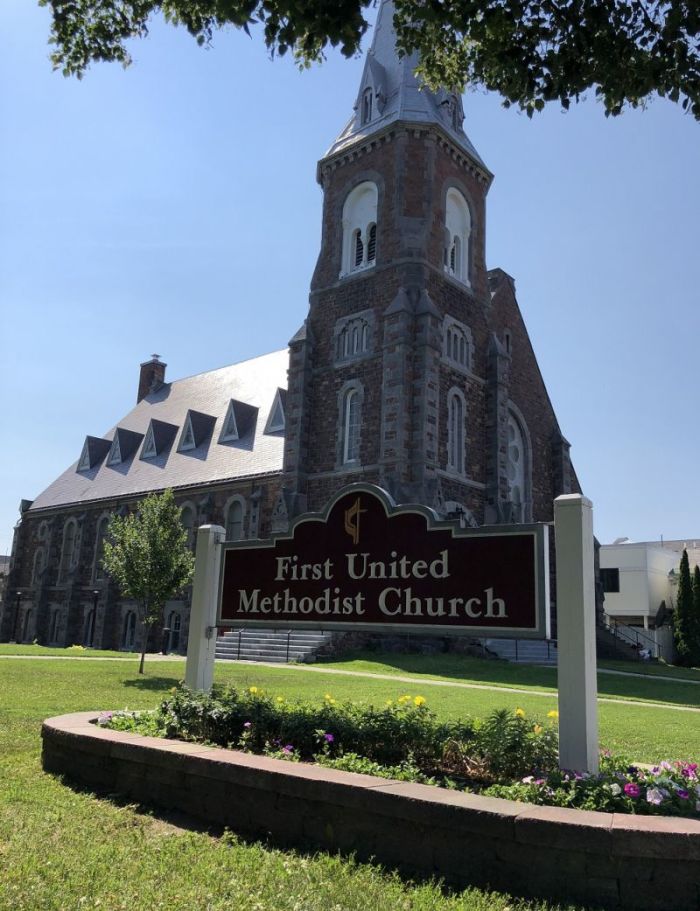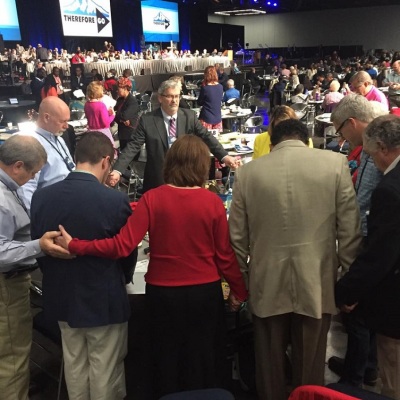Spiritual seekers increasingly open to visiting United Methodist churches: report

Americans who are spiritual seekers are increasingly likely to visit United Methodist churches, according to a recently released report.
United Methodist Communications released the findings of a survey fielded by the Barna Group that examined the trends of religious seekers in the United States.
Among adults seeking more spirituality in their lives, 42 percent said they were willing to visit a UMC congregation. This is an increase from the 28 percent who said this in 2017.
Thirty-percent of respondents also said they hold a positive impression of the UMC, while 44 percent held no opinion. The 30 percent was 2 percent higher than reported in 2017.
United Methodist Communications also reported on Dec. 4 that the survey found that about half of those who said they were willing to visit a UMC congregation plan to do so within the next three months.

Barna conducted the study from Aug. 30 to Sept. 11 via an online panel. They used a nationally represented sample of 675 U.S. adults aged 18-49 screened to verify that they met the definition of a “spiritual seeker," with a margin of error of plus or minus 4 percent.
Dan Krause, chief executive of United Methodist Communications, said in a statement released Dec. 4 that the survey results showed the denomination “garners positive perceptions among potential churchgoers despite ongoing conflict within the denomination.”
“We believe it’s an indicator of the effectiveness of our advertising messages that willingness to visit increased, while our favorability ratings among the seeker population remain stable,” he added.
The report on seekers comes as the UMC prepares for next year’s General Conference, in which the divisive issue over the denomination's stance on LGBT issues is expected to be the main focus.
Over the past several years, the UMC has debated whether to maintain biblical doctrine and its current stance, as laid out in the Book of Discipline, that homosexuality is “incompatible with Christian teaching.”
This position includes a ban on the ordination of noncelibate homosexuals and prohibiting clergy from officiating same-sex marriages or being in a same-sex marriage.
Although proposals to remove the language fail every four years at General Conference, opponents have increasingly resisted the Book of Discipline rules on homosexuality.
This has led many to conclude that by the end of next year’s General Conference, the denomination will likely experience a schism of some kind.
Recently, eight current and retired bishops of the UMC signed on to an official statement saying that the denomination could not remain in its “current form of unity.”
“The events transpiring since the adjournment of the Special Session of General Conference illustrate how deep our division is. Sadly, even greater discord, chaos and fighting loom on the horizon at the 2020 General Conference in Minneapolis,” read the statement.
“This is why we recognize our beloved United Methodist Church no longer can continue in our current form of unity. It is time to quit undermining our mission. It is time for the entire church to come together to figure out how to be the people called Methodists in a new way — to seek a new form of unity.”





























